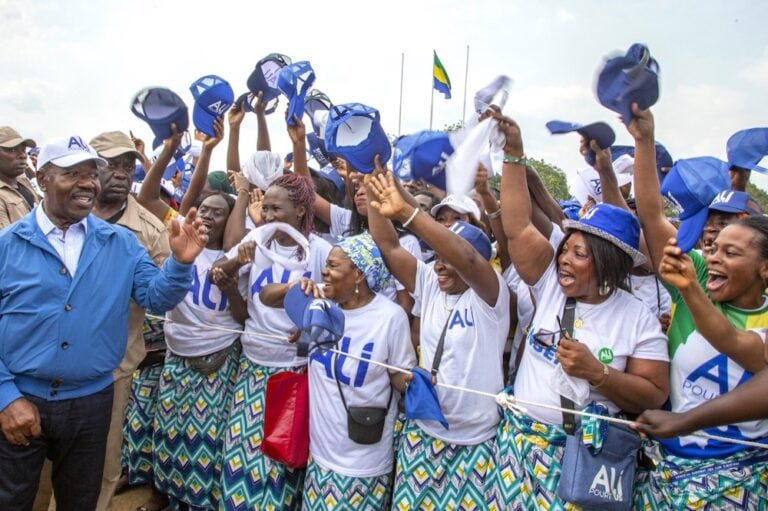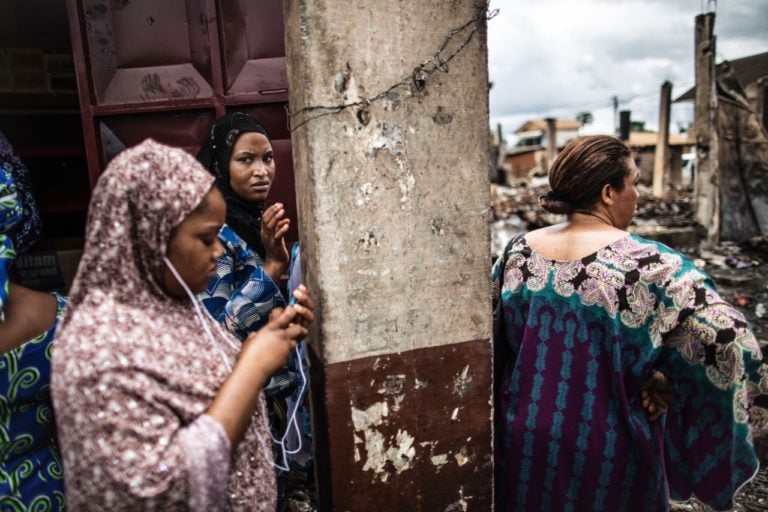Two of the journalists have fled the country fearing arrest after being summoned by police for interrogation.
(CPJ/IFEX) – New York, March 20, 2012 – The Committee to Protect Journalists calls on Gabon’s authorities to drop legal proceedings against six journalists in connection with articles raising questions about the use of a presidential plane. Two of the journalists have fled the country fearing arrest after being summoned by police for interrogation.
Beginning in the first week of March, police in the capital Libreville issued summonses to editors Guy Pierre Bitéghé of Le Mbandja, Désiré Ename of Echos du Nord, Maximin Mezui of La Une, Jean de Dieu Ndoutoume-Eyi of Edzombolo, Blaise Mengue Menna of La Nation and independent journalist Marc Ona Essangui, according to local journalists.
The summonses were based on articles raising critical questions about the use of a presidential plane by Maixent Accrombessi, chief of staff of Gabon President Ali Bongo Ondimba, for an unofficial trip to Benin in November, the journalists told CPJ. Accrombessi was briefly detained on November 11, 2011, at the international airport in the Beninese city of Cotonou following a security check, according to international news reports. Beninese independent newspaper Le Béninois Libéré reported that narcotics, sums of cash, and women were found on board the plane, attributing the information to airport and security sources, according to CPJ interviews with local journalists. In a press statement, Benin’s government called the allegations “false and defamatory,” and formally apologized to Gabon. Benin’s state-run media regulatory agency subsequently banned Le Béninois Libéré and forbid publisher Aboubacar Takou and Editor Eric Tchakpè from practicing journalism, according to news reports.
While other Gabonese news media reported the incident and the apology by toeing the official line, the five private newspapers commented critically on the allegations, according to local journalists.
“The journalists were reporting on a matter of public interest and there is no reason for authorities to interrogate them,” said CPJ Africa Advocacy Coordinator Mohamed Keita. “We call on Gabonese authorities to drop any case against these journalists.”
Only two of the six journalists, Bitéghé and Essangui, reported to police, they told CPJ. During a three-hour interrogation on March 1, police demanded to know why Biteghe published a story on the allegations. Essangui, an environmental activist as well as journalist, was questioned for 45 minutes on March 13 about posting online a Beninese newspaper’s article about the allegations. Ndoutoume-Eyi and Mezui ignored the summons, they told CPJ. Two other editors, Ename and Menna, fled the country, fearing arrest, according to local journalists.
None of the journalists have been formally charged. However, if State Prosecutor Sidonie Flore Ouwe were to authorize charges such as criminal defamation or contempt to the Republic, convictions would carry prison terms, according to local journalists.


